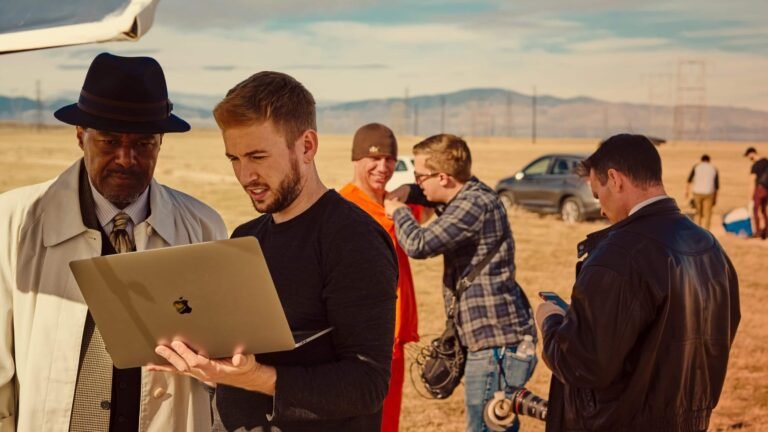Have you ever wondered what a producer does in film, television, or music? The title “producer” gets thrown around, but many people aren’t sure what this role entails. While the term may seem broad, it is one of the most essential figures in any production. These professionals oversee the entire process, from the initial idea to the final product, ensuring everything runs smoothly, on time, and within budget.
So, what does a film producer do? Producers’ responsibilities can vary significantly depending on the type of production and the specific role they are filling. There are several types of producers, each with its own set of tasks and responsibilities. Let’s dive deeper into the different types of producers and their unique roles within the production process.
Types of Producers in Film and Television
Producers play multiple roles in film and television to ensure a project’s success. Each type collaborates to bring a project from concept to completion, working behind the scenes to handle logistics, creative input, and financial oversight.
- Executive Producer
These professionals are often the highest-ranking person on a project. Although they may not be involved in the day-to-day operations, they are instrumental in securing funding, approving significant decisions, and ensuring that the project stays aligned with its financial and creative goals. - Line Producer
Once the production starts, the line producer ensures that everything runs on time and that any issues are quickly resolved. Their primary role is logistical, guaranteeing the production stays on track financially and operationally. - Co-Producer
They share responsibilities with the producer and often assist with specific aspects of the production. For example, they might focus on securing specific locations, overseeing post-production, or managing particular departments. - Associate Producer
They typically handle more specialized tasks, such as securing additional funding, overseeing specific production elements, or assisting in post-production. Their role is often more flexible, allowing them to fill in wherever needed.
Their Roles in Music Production
While the role in film and television is often related to logistics and project management, they take on a more creative and technical position in the music industry. Here are a few critical roles within music production:
- Music Producer: They are responsible for a music project’s overall sound and direction. They work closely with the artist to shape the songs, select arrangements, and oversee the recording process.
- Executive Producer: Similar to their role in film and television, they oversee the budget and ensure that the project stays within financial constraints. They may also be involved in securing deals with record labels or distributors.
- Recording Producer: They focus on the technical side of music production, handling sound engineering, mixing, and mastering to create a polished final product.
Key Responsibilities of a Producer
A producer’s job is multifaceted, and while their roles may vary depending on the industry, specific core responsibilities remain consistent. Some essential duties include:
- Budget Management: This includes allocating funds for different departments and overseeing expenses throughout production.
- Team Coordination: They bring together key team members such as directors, writers, and crew. They ensure everyone is aligned with the project’s vision and that all tasks are completed on time.
- Creative Oversight: They contribute to the creative process by offering input on scripts, storylines, or music arrangements. They also work closely with directors and artists to ensure the final product meets the project’s goals.
So, what does a film producer do? They are the glue that holds a project together, from initial conception to the final product. Whether in film, television, or music, they play a pivotal role in ensuring that every production element runs smoothly. Their ability to manage creative and logistical aspects makes them indispensable to any project’s success. If you’re curious about pursuing a career in production or working with producers, understanding their diverse roles is the first step.





